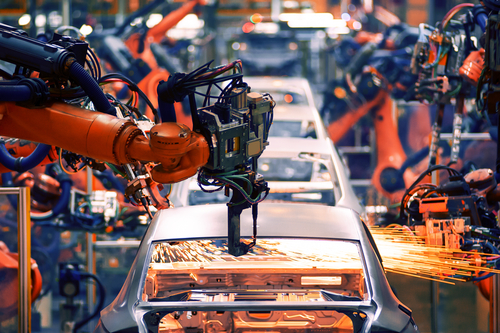
Transportation industry leaders told Congress this week that the industry needs liability protection and flexible funding in order to navigate the economic slow-down that resulted from the COVID-19 pandemic.
During a U.S. Senate Committee on Commerce, Science, and Transportation hearing on Wednesday, representatives from transportation advocacy organizations said they hope Congress will focus on infrastructure spending in order to help the country’s economy rebound, but that they also hope Congress will keep an eye on businesses in the transportation sector that need federal help to survive.
John Bozzella, the president and CEO of the Alliance for Automotive Innovation, said automotive manufacturers estimate it will take some time before the industry returns to pre-COVID levels.
“We know it will take time to recover from COVID-19’s impacts. Before the public health crisis, analysts were projecting 2020 sales of almost 17 million units. Current market projections estimate that 2019 sales levels might not return until 2023,” Bozzella said in his testimony.
Automakers hope to work with their partners in the supply chain, he said, but also with partners in government to get the supply chain up and running again. By focusing on the liquidity of suppliers in the automotive supply chain, the federal government could save the industry. Businesses within the automotive supply chain aren’t capitalized right now and without that focus on liquidity by the federal government, an uptick in the economy followed by a downturn could be catastrophic for the industry’s small- and medium-sized businesses.
Randy Guillot, chairman of the board for the American Trucking Associations, said organizations also need liability assurances to protect them from lawsuit-happy trial lawyers waiting for businesses to open back up.
“We’re very concerned about following CDC and OSHA guidelines to protect our workers, but there’s always going to be bad actors out there,” he said. “We’re not asking for protections from a bad actor. We’re asking for protections as we try to follow all these guidelines.”
Guillot said it was also critical for the federal government to invest in infrastructure to create jobs and to provide incentives to trucking companies to invest in cleaner and more energy-efficient equipment. His recommendation to the committee was to pay for infrastructure investment by raising the fuel tax 5 cents a year over the course of the next four years, a move he said would raise hundreds of billions of dollars in funding for infrastructure.
Guillot also recommended that Congress suspend the federal excise tax through 2021 in order to relieve the tax burden on trucking companies and spur them on to economic recovery.
Ian Jefferies, president and CEO of the Association of American Railroads, said that while it’s important to provide protections to the companies, it was also critical to provide protection to the employees of those companies and advocated giving transit workers priority access to personal protective equipment as the pandemic continues.
“We’re relying on frontline workers to be out there to do the job to keep America moving, and that’s not ending anytime soon,” Jefferies said. “Making sure they have full access to testing, to PPE, and other medically related supplies is key. We owe that to them.”
But for Larry Willis, president of the transportation trades department with the AFL-CIO, the priority was not just getting employees the protective equipment that is needed, but for Congress to ensure that employers follow safety guidelines.
“Quite frankly what my members are telling me every single day is that what they need in their workplaces is real safety requirements on their employers,” Willis said. “Access to treatment and masks is fine, but there needs to be a requirement that it gets used and deployed in the right way; that cleaning and disinfecting procedures are occurring in the correct manner; that social distancing… is done in the transportation workplace… We’ve had to work way too hard with our employers on too many occasions. We’ve asked this administration, DOT and other agencies to step in and make these requirements, but we haven’t gotten there.”
Alex Oehler, the interim president and CEO of the Interstate Natural Gas Association of America, said he anticipated that the country will see an upturn over the next three months and beyond, but added that those infrastructure and transportation industries need to be prepared for the increase in demand that will come along with it.